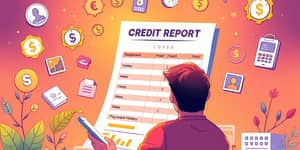In an era of rapid economic shifts and digital finance, understanding money has never been more critical. Financial literacy is the key to unlocking opportunities, reducing stress, and building a secure future for ourselves and our families.
Understanding the Current Financial Literacy Landscape
Despite living in one of the wealthiest nations on earth, American adults continue to wrestle with basic money concepts. Recent studies reveal a persistent stagnation around 50% correct responses on financial literacy assessments over the past eight years. In 2025, U.S. adults answered only 49% of index questions correctly, unchanged since 2017. Shockingly, the share of adults with poor financial literacy rose from 20% in 2017 to 25% in 2023.
This plateau shows that traditional approaches may no longer suffice. As finances become more complex—spanning credit cards, investments, retirement planning, and digital currencies—the need for robust education and practical experience grows ever more urgent.
Demographic Disparities: Who Is Being Left Behind?
Financial literacy is not evenly distributed. Certain demographic groups face systemic barriers that undermine their ability to make sound money decisions. Young adults, women, and marginalized communities often lack access to relevant education and resources.
These gaps matter. Individuals with low literacy levels are twice as likely to be debt-constrained and three times more likely to be financially fragile. Addressing these disparities is not just a matter of fairness—it’s an economic imperative.
Economic Consequences of Financial Ignorance
Poor money management takes a heavy toll. In 2023 alone, Americans lost an estimated $388 billion due to suboptimal financial decisions. People with very low literacy often spend over 20 hours per week wrestling with personal finance issues, time that could be invested in productive work, family, or self-improvement.
Moreover, overconfidence compounds the problem. On average, respondents rate their own financial knowledge as 5.1 out of 7, creating a dangerous gap between perception and reality. This mismatch leads to risky investments, unchecked debt, and missed opportunities for growth.
Building Strong Financial Foundations: Key Areas of Knowledge
- Budgeting and saving: mastering income allocation and emergency funds
- Borrowing and credit: understanding interest rates and responsible usage
- Investments: risk assessment and long-term wealth building
- Retirement planning: projections, accounts, and compounding benefits
- Insurance and protection: shielding against unforeseen setbacks
While many Americans feel comfortable with saving and borrowing basics, comprehension of risk remains the weakest link—only 36% of risk-related questions are answered correctly. Bridging this gap empowers individuals to make choices that align with their life goals.
Benefits of Becoming Financially Literate
- High achievers in financial literacy are 72% more likely to save regularly
- They are 50% more likely to compare prices and seek the best deals
- They experience reduced financial stress and gain peace of mind
- They can take control of their financial future and set long-term objectives
- They navigate economic changes with resilience and confidence
These advantages translate into life-changing outcomes: homeownership, debt freedom, and a comfortable retirement become achievable milestones rather than distant dreams.
Empowering the Next Generation Through Education
Youth are digital natives and active financial product users. By age 15, close to 90% have made online purchases, and over 60% hold bank accounts or payment cards. Yet one in five students lacks even basic proficiency in applying finance concepts to real-life situations.
Experiential learning—such as virtual budgeting simulations and project-based workshops—bridges theory and practice. When young people translate knowledge into practical skills, they enter adulthood ready to invest wisely, save consistently, and manage debt responsibly.
Practical Steps to Enhance Your Financial Literacy
- Enroll in online courses covering budgeting, credit management, and retirement planning
- Participate in workshops or community programs with interactive simulations
- Create and track a personal budget using digital tools or apps
- Read reputable financial news and follow expert-led webinars
- Join peer groups or forums to share experiences and strategies
Small, consistent actions can yield compounding benefits over time. Start by setting one achievable goal—such as saving $50 per month—and build momentum from there.
Conclusion: A Path Forward
Financial literacy is more than just numbers; it’s a passport to freedom, opportunity, and security. By confronting gaps in knowledge, embracing hands-on learning, and leveraging available resources, we can transform our financial futures.
Investing in education today pays dividends tomorrow. Together, we can create a society where every individual has the tools to thrive, regardless of background or income. The journey toward financial empowerment starts with a single step—take yours today.
References
- https://www.occ.treas.gov/publications-and-resources/publications/community-affairs/financial-literacy-updates/financial-literacy-1st-quarter-2025.html
- https://moneyzine.com/personal-finance/financial-literacy-statistics/
- https://excelined.org/2025/03/04/financial-literacy-education-in-the-united-states-landscape-analysis-and-next-steps/
- https://www.tiaa.org/public/institute/publication/2025/financial-literacy-and-retirement-fluency-in-america
- https://www.weforum.org/stories/2024/04/financial-literacy-money-education/
- https://www.frontiersin.org/journals/education/articles/10.3389/feduc.2024.1397060/full
- https://empeople.com/learn/empeople-insights/why-financial-literacy-is-important-for-everyone/
- https://www.oecd.org/en/blogs/2025/03/the-role-of-financial-literacy.html










